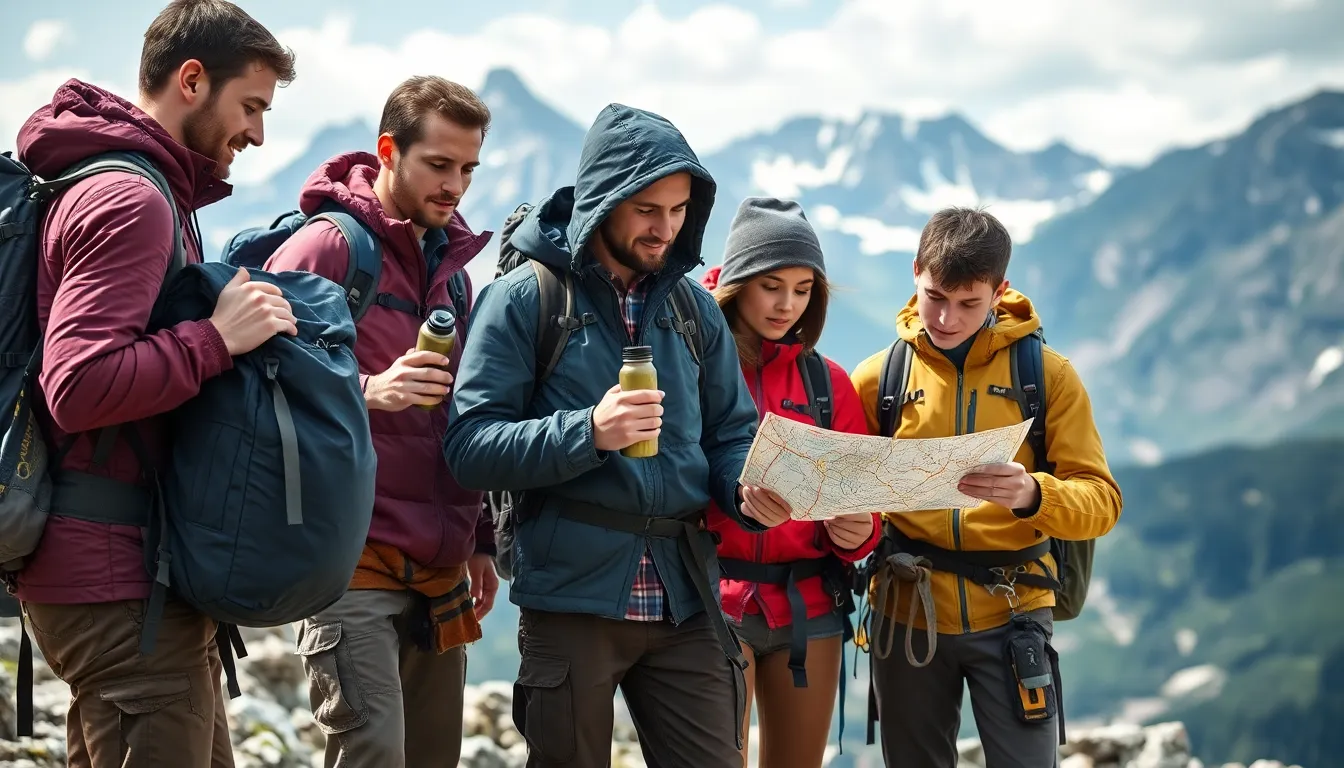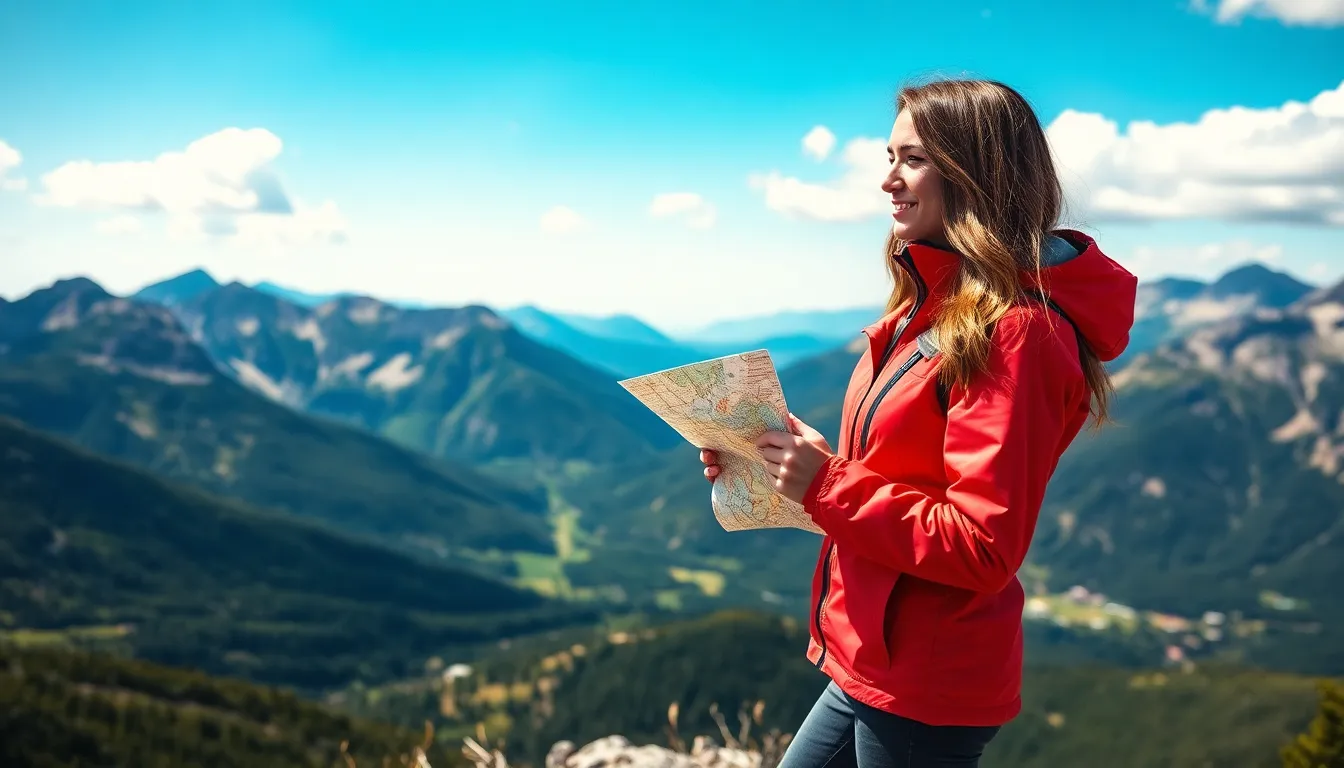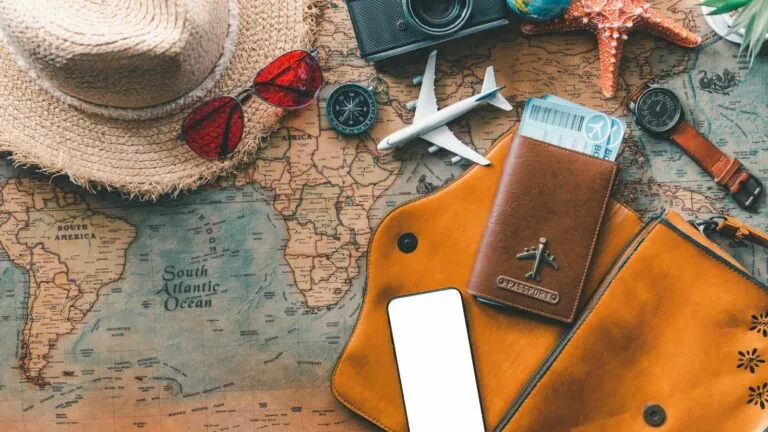Adventure travel isn’t just a getaway; it’s a thrilling escape from the ordinary. Whether it’s scaling mountains or diving into the depths of the ocean, every adventure comes with its own set of challenges and triumphs. But before packing those hiking boots or snorkel gear, a little preparation goes a long way.
Table of Contents
ToggleEssential Adventure Travel Tips
Preparation is key for a successful adventure travel experience. These tips cover destination research and cultural understanding, crucial for enhancing enjoyment and safety.
Research Your Destination
Gather information about the location before travel. Identify the best time to visit based on climate and local events. Knowing about popular activities and potential hazards enhances planning. Look into necessary permits for activities such as hiking or diving. Secure accommodations that suit the adventure’s demands and location. Review transportation options to navigate the area efficiently.
Understand Local Culture
Familiarize with local customs and traditions. Learning a few key phrases in the local language fosters connections. Respect local dress codes, especially when visiting religious sites. Understanding dining etiquette can improve interactions with locals. Knowing cultural norms reduces the risk of misunderstandings. Explore local history and customs to appreciate the destination on a deeper level. A cultural understanding enriches the overall travel experience.
Preparing for Your Adventure

Preparation plays a crucial role in achieving a successful adventure. Each detail matters, from what to pack to maintaining health.
Packing Essentials
Packing wisely ensures comfort and readiness during the journey. Include a waterproof backpack for gear protection. Carry layered clothing for varying weather conditions, and don’t forget sturdy footwear suited for activities. Also, pack a first-aid kit containing essential medications and supplies. Consider including a reusable water bottle to stay hydrated. Navigation tools like maps or GPS devices enhance safety. Finally, bring along any adventure-specific gear, such as climbing equipment or snorkeling masks.
Fitness and Health Considerations
Maintaining fitness enhances performance during activities. Engage in a fitness regimen weeks before the adventure. Strength training prepares muscles for physical challenges. Cardio exercises, like running or cycling, boost stamina. Additionally, consult a healthcare professional before the trip, especially for activities involving high risk. Stay current on vaccinations pertinent to travel destinations. Lastly, prioritize nutrition by consuming a balanced diet to support energy levels throughout the adventure.
Safety Precautions
Safety remains a top priority during adventure travel. He or she must stay aware of potential risks and plan accordingly.
Travel Insurance Importance
Travel insurance plays a crucial role in protecting travelers during unexpected events. Coverage for trip cancellations, medical emergencies, and lost belongings ensures peace of mind. Many adventure activities, like mountain climbing or scuba diving, often require specialized insurance. Policies should clearly outline coverage limits, exclusions, and claim processes. Evaluating different options helps travelers select the most suitable plan based on specific needs.
Emergency Preparedness
Emergency preparedness equips travelers to handle unforeseen situations effectively. It includes creating a comprehensive plan for potential emergencies, such as injuries or natural disasters. Storing essential contact information, like local emergency numbers and embassy details, in a readily accessible format proves valuable. Carrying a portable phone charger can help maintain communication during unexpected delays. He or she should also familiarize themselves with the terrain and local hazards. All these steps enhance safety and readiness for any adventure.
Sustainable Adventure Travel
Sustainable adventure travel prioritizes environmental responsibility and community support. It encourages travelers to minimize their impact on nature while enjoying thrilling experiences.
Eco-Friendly Practices
Travelers often adopt eco-friendly practices by reducing waste and conserving resources. Choosing reusable water bottles and shopping bags significantly cuts down on plastic use. Selecting accommodations that implement green initiatives, such as solar power and water conservation, enhances sustainability. Responsible wildlife viewing, which involves staying a safe distance from animals, helps protect natural habitats. Additionally, opting for local transportation options that produce fewer emissions contributes to a smaller carbon footprint.
Supporting Local Communities
Supporting local communities enriches travel experiences and boosts economies. Travelers can prioritize hiring local guides, which fosters authentic cultural exchanges. Purchasing handmade crafts directly from artisans generates income for families and communities. Eating at locally-owned restaurants allows travelers to savor traditional cuisine while supporting the region’s economy. Engaging in community-based tourism initiatives ensures that a larger portion of the travel budget directly benefits the local population.
Adventure travel opens doors to unforgettable experiences and personal growth. By prioritizing preparation and safety travelers can embark on thrilling journeys with confidence. Understanding local cultures and practicing sustainable tourism not only enhances enjoyment but also fosters respect for the destinations explored.
Packing the right gear and maintaining fitness ensures that adventurers are ready for whatever challenges lie ahead. With a well-thought-out plan and a commitment to responsible travel practices each adventure becomes more than just a trip; it transforms into a meaningful journey that leaves lasting memories and positive impacts on the places visited. Embrace the adventure and make every journey count.





